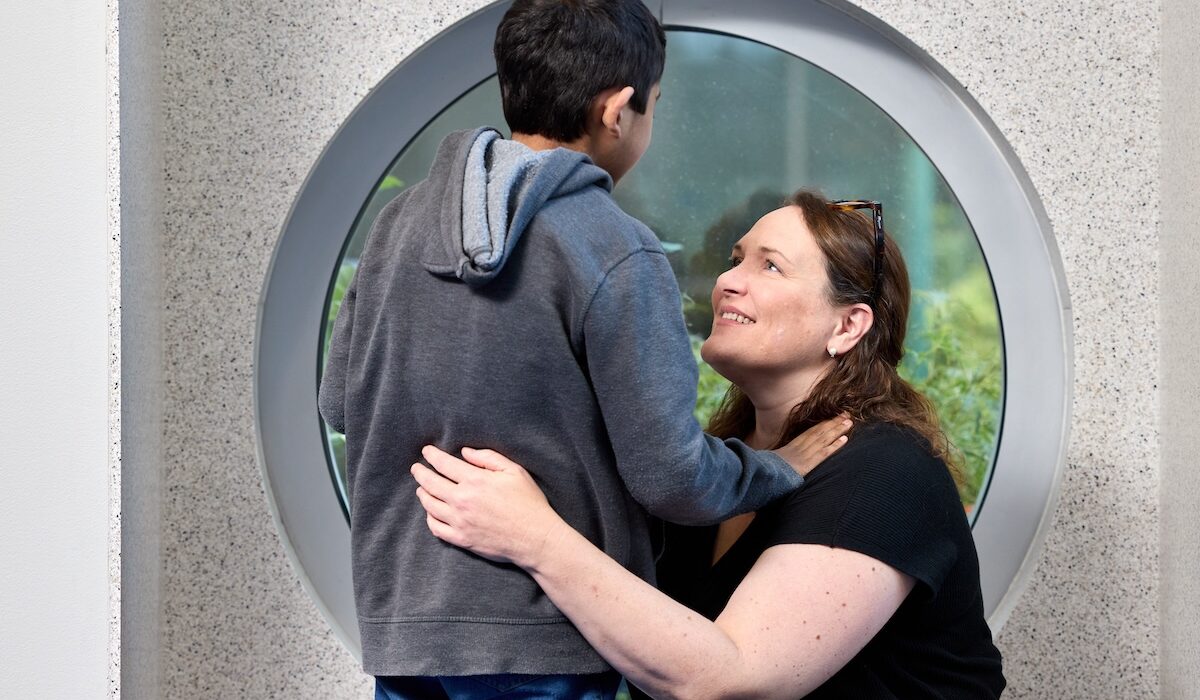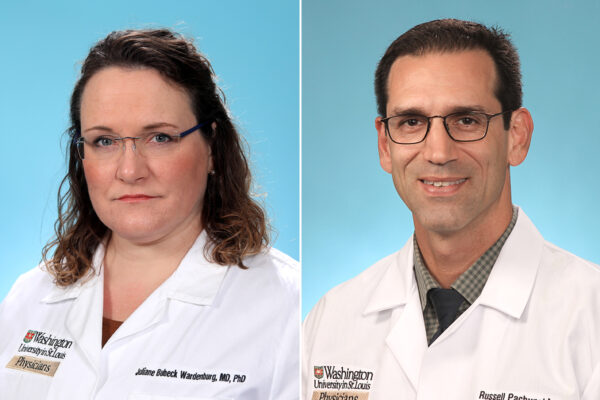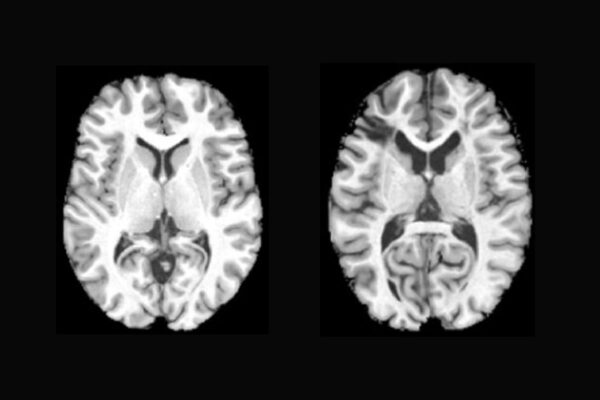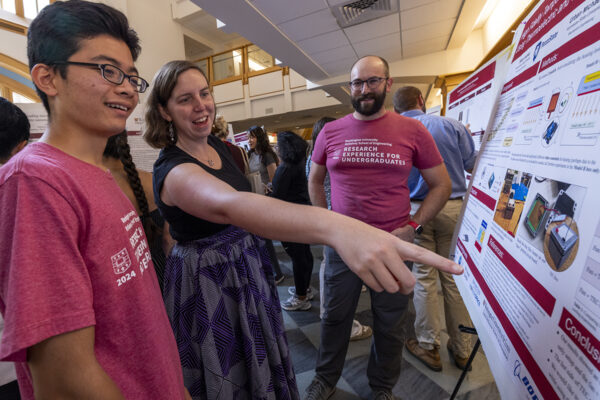At a dinner party three years ago, two families that were connected by an unimaginable situation cherished a joyful evening. Laughter, heartfelt conversation and the aroma of traditional Pakistani fare filled the room.
For the evening’s hosts, such happiness had been inconceivable months earlier, when their 10-year-old son and dinner guest Juliane Bubeck Wardenburg, MD, PhD, the Donald B Strominger Professor of Pediatrics at Washington University School of Medicine in St. Louis, first met. That day, Yahya Fahad was admitted to the pediatric intensive care unit (PICU) at St. Louis Children’s Hospital. He was in critical condition with swelling, low blood pressure and inadequate oxygen to supply his body’s needs.
“It was one of the hardest moments in our lives,” said Yahya’s mother, Maliha Fahad, who practiced medicine in her home country, Pakistan, before moving to the U.S. in 2020. “And then we met Dr. Bubeck Wardenburg, and experienced her kindness, empathy, patience and reassurance. Her compassion for our situation brought us comfort. Her support helped us feel confident. In that vulnerable moment, she embraced us in her care as she would her own family.”
Yahya’s illness played out unpredictably. He suffered from nephrotic syndrome, a kidney condition that causes the body to excrete too much protein in the urine. While he was being treated for fluid and sodium abnormalities, he became septic. Before Bubeck Wardenburg and her colleagues could determine the underlying cause, he needed to be stabilized.
Yahya required heart and lung support to buy his body time to heal. The immense pressure of the decision to put their middle child on artificial life support weighed on them, Maliha recalled. On top of that, as immigrants new to the U.S., they had to navigate the complexities of an unfamiliar medical system.
But during the dinner party months later, the Fahads watched as their nonverbal son showed affection toward his doctor by staying close to her and offering a slight smile that temporarily lifted the heavy weight the boy’s parents carried. Bubeck Wardenburg had come to understand his subtle expressions and impatient, rhythmic foot tapping, which would shift her undivided focus to him.
Care beyond the clinic
Bubeck Wardenburg cannot ensure happy endings for her sickest patients and their terrified families. But with her depth of empathy and compassion, she stays present with families in the trenches.
As a pediatrician working in the PICU and the director of the Division of Pediatric Critical Care Medicine at WashU Medicine, she oversees the care of up to 15 children every day, each with unique medical struggles. They face traumatic injuries, infections, respiratory illnesses, cancers and rare genetic diseases. And she provides care for more than just her patients. For more than 20 years, Bubeck Wardenburg has been supporting parents unexpectedly faced with critical illnesses. Such families experience a high incidence of depression.
Among the many ways she and her clinical division supports their well-being is through a “PICU follow-up” program that was started in 2017 to help patients and caregivers with their physical and emotional health during the transition home from the PICU. As one of the few programs in the country dedicated to helping kids and families get back to school, work and regular routines as soon as possible, the Neurocritical Care Follow-up Program (NCFP) team meets families prior to discharge and arranges for outpatient visits, education support and family-based follow up through phone calls and texts.
“This job requires showing up when things aren’t going well and exhibiting care for what each family is going through,” Bubeck Wardenburg said. “I could not be prouder of my fellow faculty members and the trainees and staff who are helping families get through tough experiences with as much grace as possible. It’s what we do best.”
She also devotes time to mentoring junior colleagues and students, not only to help them develop as talented physician-scientists but as kind, thoughtful caregivers.
Read the full profile on the WashU Medicine website.



